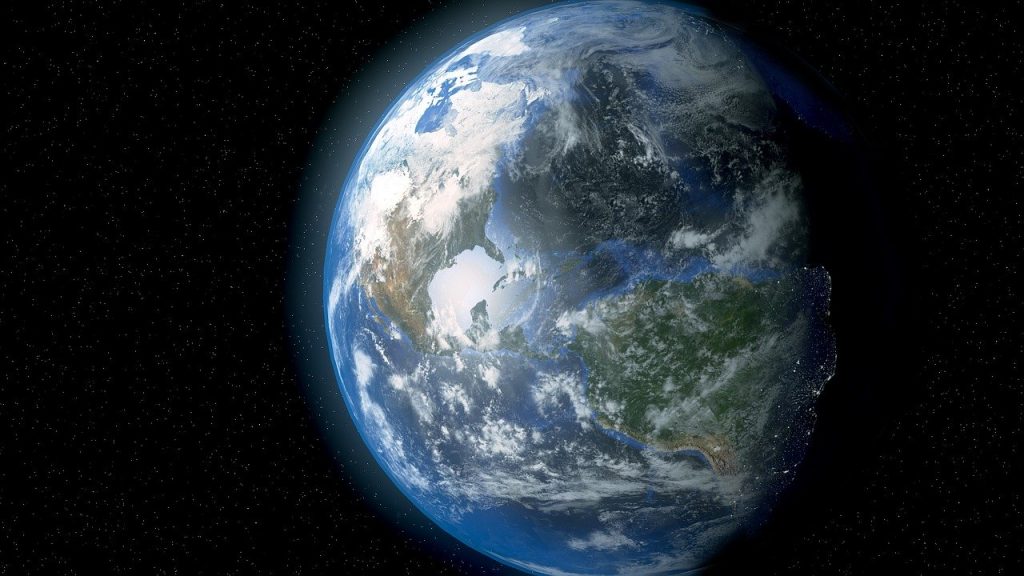April 22 celebrates Earth Day, as you might have noticed on social media. This year, during the coronavirus pandemic, it seems like the world came to a stop. Images and videos are being shared of how animals are thriving in cities and oceans.
This gives people hope, at least they feel like they are quarantined for a good reason: giving the earth a break. But the quarantine will be over soon enough. And the big question is: how will we live our lives in the future?
Humans are apex predators, meaning we are at the top of the food chain. However, we share this world with so many other creatures, to whom we are often not respectful. As we go back to our “normal” lives, we must consider changes to our behavior, as individuals and as a society. Governments need to be responsible. Our pressure, as we become educated, makes them take action and change the way business and policies are done. Technology has advanced so much, that we do not need to be so dependent on fossil fuels. Nevertheless the status quo is always reluctant to change, unless it is imposed.

Either we start making changes or they will be imposed (like this quarantine) reducing our freedom in order to take drastic actions once it is too late.
What changes can you make to live more eco-friendly life?
Walk or use public transport: instead of taking your car, simply walk (exercise is good for you!) or use public transport, which will save you money.
Reduce energy consumption: turn off the lights in your house, unplug electronic devices, change your light bulbs to energy efficient ones, and turn off breakers that you are not using. Your wallet will thank you as well!
Reuse: this applies so many things, from scrap paper to containers. Get a reusable BPA free water bottle and a filter instead of buying bottle water. Reuse your clothes, seriously buying the “latest” fashion is just a marketing scam. Also, donate your clothes so others can reuse them or buy pre-owned things.
Buy local: help your local farmer, get fruits and vegetables that are in season. This reduces emissions from fuel used to transport food.
Eat less meat: industrial animal production, especially cattle farming, is causing massive deforestation and it produces a lot of methane gas. If you do not want to be vegan or vegetarian, simply try skip animal meats a couple times per day. Thankfully there are plenty of meatless meat options.
Start a garden: plants convert carbon dioxide and water into carbohydrates creating oxygen, which is needed by humans, duh. Choose edible plants such as herbs, fruits or vegetables, to be able to get a real benefit from gardening. Those with no outdoor space can use pots to plant indoors. Also, composing is a great way to manage waste.
Use water responsibly: many places are facing serious drought problems. Sweet water is quite scarce and climate patterns are changing. So closing the faucet while washing dishes or brushing your teeth makes a big difference. Wait to flush the toilet, you know that saying: if its yellow let it mellow…
How can you Celebrate Earth Day?
Exercise outdoors: go for a walk, run, bike or hike. Because it is 2020 you must keep your distance, but there are plenty of areas that are not populated, including beaches and mountains.
Gardening: interacting with plants contributes to your well-being, improving your mood, blood pressure, heart rate and stress hormone levels. It can help people to reach a state of mindfulness.
Meditate: in Japan they practice “forest bathing” to help people relax and reduce stress. Meditation has many health benefits, including regulating emotions, reducing stress, and boosting the immune system.
Virtual activities: share messages on social media to educate others or watch an eco-documentary. Many sanctuaries, aquariums and zoos (including Smithsonian’s National Zoo) have live-stream of animals.

History of Earth Day
The first Earth Day was first celebrated on April 22, 1970, when United States Senator Gaylord Nelson organized a nationwide rally to promote environmental protection. It was to be an “environmental teach-in” to educate people about environmental conservation. Over 20 million people participated, which was 10% of the population! The event was especially popular with younger generations.
After the event, Congress passed the Clean Air Act (1970) and the Endangered Species Act (1973). Earth Day 2016, was the day chosen to sign the Paris Agreement, a framework created by the United Nations on Climate Change. It was signed by all members, except Iran and Turkey, to mitigate greenhouse gas emissions.
Earth Day is now celebrated globally, in more than 193 countries, by over a billion people. Earthday.org is a non-profit organization that has over 75,000 partners worldwide organizing activities and actions. Every year there is a different theme; for the 50th anniversary the theme chosen was Climate Action.